Tap water often contains chlorine and heavy metals, which can damage the liver, kidneys, and digestive system without users even knowing it.
Many negative consequences of drinking untreated tap water that does not meet standards.
According to Dr. Vo Thi To Hi, Head of the Nutrition Department at Gia An 115 Hospital (Ho Chi Minh City), tap water in large cities like Ho Chi Minh City is usually treated to meet the National Technical Standard on the Quality of Clean Water for Domestic Use (QCVN 01:2021/BYT). However, this standard only ensures water quality for general domestic use, not for direct drinking.

Drinking clean water properly is very important for health.
Illustration: AI
In reality, even if the source water is treated properly, when it passes through old pipes, tanks, or faucets, it can become re-contaminated with microorganisms such as E. coli, Giardia, or heavy metals such as lead, copper, and zinc. Additionally, residual chlorine used for disinfection can react with organic substances in the water to produce trihalomethanes (THMs) such as chloroform – which, if accumulated over time, can affect the liver and kidneys and increase the risk of endocrine disorders.
According to Doctor To Hi, in the short term, consuming untreated tap water that does not meet standards can cause stomach pain, vomiting, and diarrhea. Excess chlorine can irritate the intestinal lining, reduce the activity of digestive enzymes, and hinder the absorption of protein and carbohydrates.
In the long term, this can easily lead to chronic enteritis, imbalance of the gut microbiota, and reduced absorption of micronutrients (iron, zinc, vitamin B12). Heavy metals such as lead and arsenic can accumulate, causing anemia, bone metabolism disorders, kidney stones, or even nerve damage.
In particular, some vulnerable groups include:
- Children: Prone to dehydration, electrolyte imbalance, and reduced absorption of iron and zinc.
- Pregnant women: Water containing nitrates or heavy metals can interfere with folate absorption, increasing the risk of birth defects.
- Elderly people: Reduced kidney function, increased risk of dehydration, electrolyte imbalance, or long-term accumulation of toxins.
Pay attention to the water tank.
Dr. To Hi emphasized that reusable plastic bottles, especially PET or PP types, if only washed manually without thorough sterilization with high temperatures (>70°C) or UV rays, can easily accumulate biofilm – a favorable environment for bacteria such as E. coli and Pseudomonas to grow.
Furthermore, when plastic bottles are exposed to sunlight or hot water, compounds such as bisphenol A (BPA), phthalates, or antimony can be released, causing endocrine disruption, liver and kidney damage, or affecting reproductive ability. Residual chlorine in water can also react with the plastic to produce chloroform, a toxic compound if accumulated over time.
Therefore, people should use glass or plastic containers that meet food safety standards (PET1, PC), avoid reusing them too many times, and replace them periodically as recommended by the manufacturer.
To ensure safety while preserving natural minerals, doctors recommend that people can apply some of the following measures:

Water should be boiled for at least 1-2 minutes to kill bacteria, then allowed to cool naturally.
Photo: AI
Proper boiling and cooling : Boil water for at least 1-2 minutes to kill bacteria, then let it cool naturally. Do not leave it for more than 24 hours as it may become re-contaminated from the environment.
Use a standard water filter : Choose one with an activated carbon or ceramic filter, which removes chlorine and heavy metals while retaining minerals like calcium and magnesium. For water with high TDS (>500 ppm), use an RO or Nano filter with an added mineral core to maintain electrolyte balance and support bone and immune health.
Regular maintenance : Replace the filter cartridge every 3-6 months depending on water quality; clean the storage tank and filter pipes to prevent re-contamination.
Regular water testing : Residents can bring water samples to the Preventive Medicine Center or the Pasteur Institute for testing for residual chlorine, E. coli, and heavy metals every 6-12 months.
"If you experience prolonged digestive disorders, fatigue, or suspect water intoxication, you should consult a nutritionist or gastroenterologist for assessment and specific guidance," advises Dr. To Hi.
Source: https://thanhnien.vn/hau-qua-truc-mat-va-lau-dai-khi-uong-truc-tiep-nuoc-may-moi-ngay-185251015213151216.htm







![[Photo] Closing Ceremony of the 10th Session of the 15th National Assembly](/_next/image?url=https%3A%2F%2Fvphoto.vietnam.vn%2Fthumb%2F1200x675%2Fvietnam%2Fresource%2FIMAGE%2F2025%2F12%2F11%2F1765448959967_image-1437-jpg.webp&w=3840&q=75)
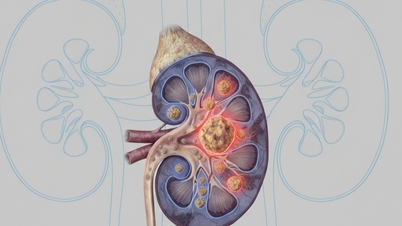
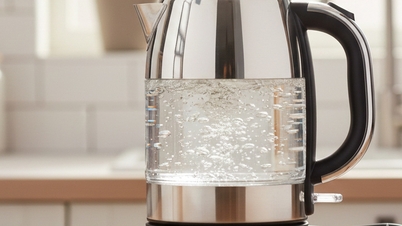
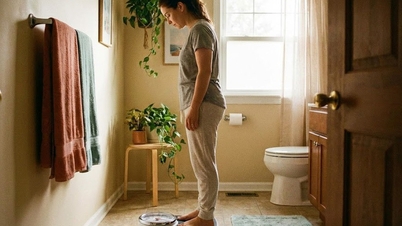
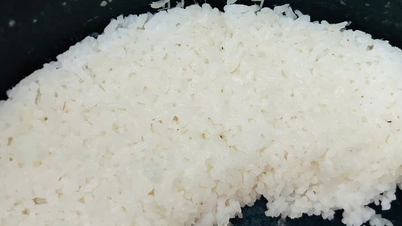











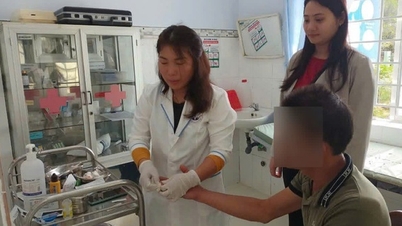

































![[OFFICIAL] MISA GROUP ANNOUNCES ITS PIONEERING BRAND POSITIONING IN BUILDING AGENTIC AI FOR BUSINESSES, HOUSEHOLDS, AND THE GOVERNMENT](https://vphoto.vietnam.vn/thumb/402x226/vietnam/resource/IMAGE/2025/12/11/1765444754256_agentic-ai_postfb-scaled.png)




























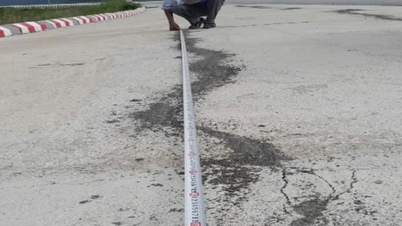






















Comment (0)